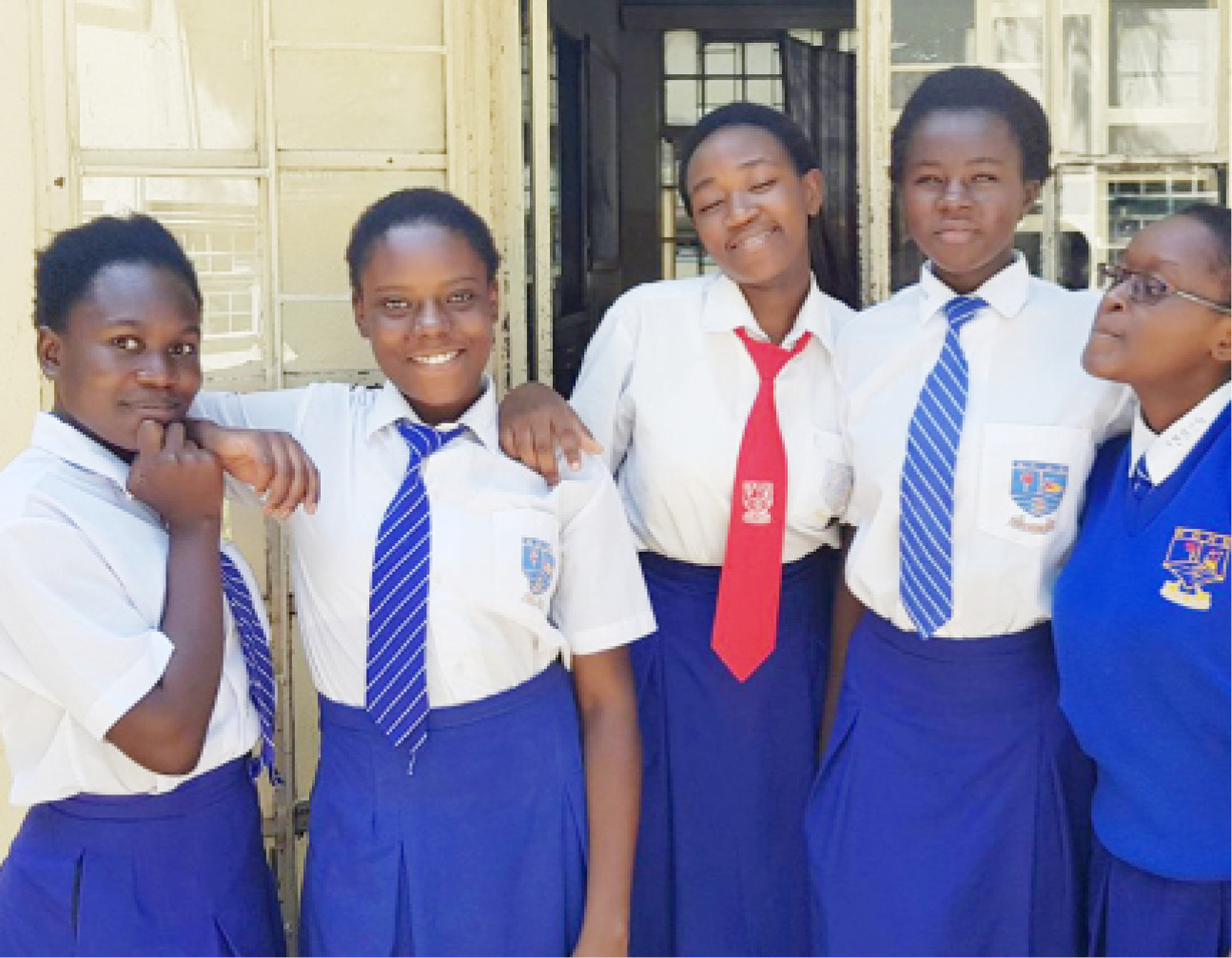How Kenyan schoolgirls are winning fight against FGM
Female Genital Mutilation (FGM) is a practice that has for a long time been condemned all over the world, yet it continues to be raging problem in most developing countries. The procedure of FGM involves partial or complete removal of the external female genitalia by the act of cutting. For an act that has no […]

The 5 Kenyan school girls who developed the “I-Cut” app to fight FGM and who have won the 2018 Daily Trust African of the Year Award.
Female Genital Mutilation (FGM) is a practice that has for a long time been condemned all over the world, yet it continues to be raging problem in most developing countries.
The procedure of FGM involves partial or complete removal of the external female genitalia by the act of cutting.
For an act that has no health benefits for the victims, the cultural beliefs attached to the practice continue to make it difficult to put to an end.
Such difficulty can be referenced with the case of a Liberian journalist, Mae Azango, in 2012, in which her story detailing the process FGM (circumcision), caused a public outroar, with threats following shortly after causing her to go into hiding. FGM was later made illegal by the Liberian President, Ellen Johnson Sirleaf.
Interestingly, a group of five teenage Kenyan school girls, “The Restorers”, has taken the fight against FGM by developing an application called “I-Cut” which, the girlsb say “focuses on sustainable development and ensures proper health.”
Purity Christine, one of the members of the group, shared the reason behind their passion for developing the app.
Purity said, “It’s something that we’ve seen our friends go through. Mothers celebrate the cut as something that makes their daughters become women. This is a practice that can result in death, not to mention the emotional trauma.”
The “I-Cut” application connects girls who are at risk of FGM to rescue centres and also provides medical and legal help to the victims.
“FGM victims can easily send distress calls to the relevant authorities by clicking the panic button in the app. There is also a report button in which any case of FGM can be reported to the authorities,” two of the girls, Cynthia and Ivy, explained.
According to the World Health Organisation (WHO), the FGM procedure can cause severe bleeding, urinal problems, infections, cysts, increased risk on newborn deaths, complications in childbirth and death.
WHO described it as “a violation of the human rights of girls and women.”
The United Nations International Children’s Emergency Fund (UNICEF) also estimated that about 200 million females have been circumcised across the world.
Beside the physical pain inflicted by the procedure, psychological problems such as depression, shock and Post-Traumatic Stress Disorder (PTSD) set in.
The Restorers’ mission has continued to grow since the success of the app with Non-Governmental Organisations (NGOs) with the same aim of eradicating FGM providing support for the work of the girls.
Due to their immense contribution in putting an end to FGM, The Restorers were selected as the winners of the 2018 Daily Trust African of the Year Award after a rigorous screening process of the nominees from all over the African continent. The girls will be honoured at an award presentation ceremony due to hold on January 16, 2018, in Abuja with a prize money of $25,000, as well as a special plaque.
